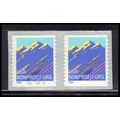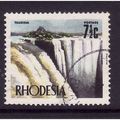Chesil Beach showing Weymouth from Portland 1970s
- Condition : Used
- Dispatch : 2 Days
- Brand : None
- ID# : 34043047
- Quantity : 1 item
- Views : 187
- Location : United Kingdom

- Seller : justthebook (+1703)
- Barcode : None
- Start : Mon 15 Nov 2010 00:11:26 (BST)
- Close : Run Until Sold
- Remain : Run Until Sold
More Listings from This Seller view all
Seller's Description
- Postcard
- Picture / Image: Chesil Beach showing Weymouth from Portland
- Publisher: Dennis Productions, 1970s
- Postally used: no
- Stamp: n/a
- Postmark(s): n/a
- Sent to: n/a
- Notes & Key words:
------------------------------------------------
Postage & Packing:
UK (incl. IOM, CI & BFPO): 99p
Europe: £1.60
Rest of world (inc. USA etc): £2.75
No additional charges for more than one postcard. You can buy as many postcards from me as you like and you will just pay the fee above once. (If buying postcards with other things such as books, please contact or wait for invoice before paying).
Payment Methods:
UK - PayPal, Cheque (from UK bank) or postal order
Outside UK: PayPal or Google Checkout ONLY please. NO non-UK currency checks or money orders (sorry).
NOTE: All postcards are sent in brand new stiffened envelopes which I have bought for the task. These are specially made to protect postcards and you may be able to re-use them. In addition there are other costs to sending so the above charge is not just for the stamp!
----------------------------------------------
Text from the free encyclopedia WIKIPEDIA may appear below to give a little background information:
*************
Chesil Beach, sometimes called Chesil Bank, in Dorset, southern England is one of three major shingle structures in Britain.[1] Its toponym is derived from the Old English ceosel or cisel, meaning "gravel" or "shingle".
The beach is often identified as a tombolo, although research into the geomorphology of the area has revealed that it is in fact a barrier beach which has "rolled" landwards, joining the mainland with Portland Bill, giving the appearance of a tombolo.[citation needed] The shingle beach is 29 kilometres (18 mi) long, 200 metres (660 ft) wide and 15 metres (50 ft) high. The beach and the Fleet are part of the Jurassic Coast, a UNESCO World Heritage Site, and the location for a book, On Chesil Beach by Ian McEwan.
At the eastern end of the beach at the village of Chiswell, against the cliffs of the Isle of Portland, the beach curves round sharply to form Chesil Cove. This part of the beach protects the low-lying village from flooding. Westwards the shingle forms a straight line along the coast, enclosing the Fleet, a shallow[2] tidal lagoon.
The beach provides shelter from the prevailing winds and waves for the town of Weymouth and the village of Chiswell, which would otherwise probably not exist
Varying with the Bank's unbroken increase in height, to 14.7 metres (48 ft), above mean high water, the size of the flint and chert shingle varies from pea-sized at the north-west end (by West Bay) to potato-sized at the south-east end (by Portland). It is said that smugglers who landed on the beach in the middle of the night could judge "exactly where they were" by the size of the shingle.[3]
The origin of Chesil Beach has been argued over for some time.[4] Originally it was believed that beach material was from the Budleigh Salterton pebble beds to the west and later from Portland to the south east. The differences between the pebbles on the beach and nearby sources is now put down to the Flandrian isostatic sea level rise, so the feature could also be considered a barrier beach or bar, that happens to connect the mainland to an island rather than a 'true' tombolo. Normally, tombolos are created due to the effects of the island on waves (through refraction) and to sediment transport, which usually produces a beach perpendicular to the mainland rather than parallel to it.
Listing Information
| Listing Type | Gallery Listing |
| Listing ID# | 34043047 |
| Start Time | Mon 15 Nov 2010 00:11:26 (BST) |
| Close Time | Run Until Sold |
| Starting Bid | Fixed Price (no bidding) |
| Item Condition | Used |
| Bids | 0 |
| Views | 187 |
| Dispatch Time | 2 Days |
| Quantity | 1 |
| Location | United Kingdom |
| Auto Extend | No |


 for 1 item(s)
for 1 item(s)















